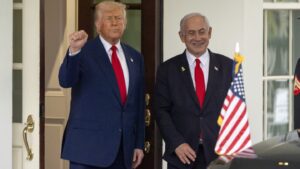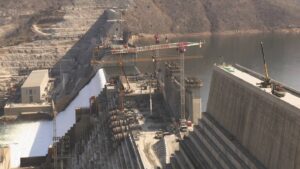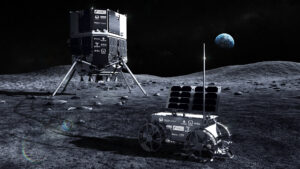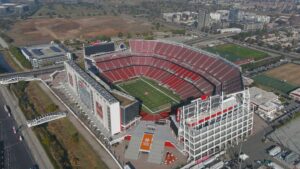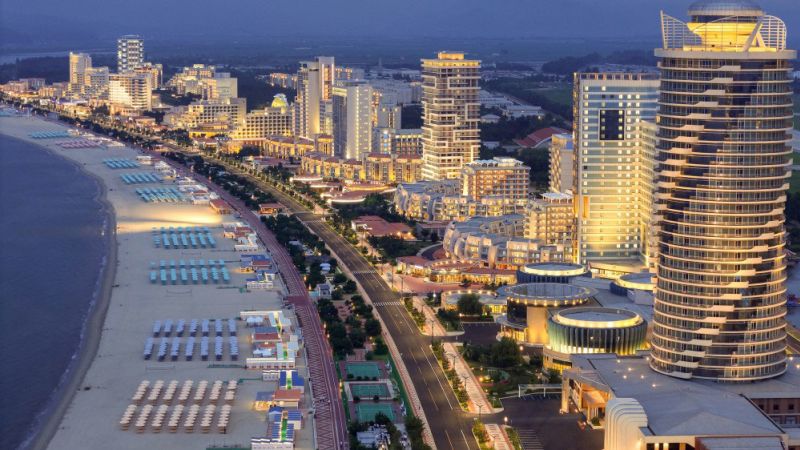
Kim Jong Un has inaugurated a new resort in North Korea, described by state media as a “national treasure-level tourism city.” This lavish seaside development, known as the Kalma beachside resort, stands in stark contrast to the widespread hunger and hardship reported across the country. The opening ceremony, held on June 24, showcased waterparks, high-rise hotels, and accommodations for nearly 20,000 guests, marking a significant display of extravagance in one of the world’s most isolated nations.
The Wonsan-Kalma Coastal Tourist Zone, located on North Korea’s eastern coast, is set to begin service for domestic guests on July 1, according to the official KCNA news service. However, details regarding eligibility or transportation remain undisclosed. Earlier this month, North Korea announced the opening of Kalma train station, intended to enhance convenience for travelers to the coastal tourist area. The proximity of the resort to an international airport suggests an effort to attract foreign currency.
International Relations and Tourism
International attendance at the ribbon-cutting was limited to the Russian ambassador and staff, reflecting Pyongyang’s growing alignment with Moscow amidst increasing isolation from Western nations. In 2024, UN human rights chief Volker Turk described North Korea under Kim’s rule as “a stifling, claustrophobic environment, where life is a daily struggle devoid of hope.”
Last year, small groups of Russian tourists visited North Korea for three-day ski holidays at the Maskiryong resort, a long-standing attraction since its opening in December 2013. These visits, like all tourist experiences in North Korea, are heavily monitored and controlled by the government. Tourists reported strict regulations on photography and mandatory attendance at choreographed performances by North Korean children.
“Wonsan-Kalma is open to just North Koreans for now, but we should not be surprised to see Russians at the resort in the not-too-distant future,” said Rachel Minyoung Lee, a non-resident fellow with the 38 North program at the Stimson Center.
Domestic and International Implications
The new development raises questions about access, audience, and economic feasibility in a country where international tourism has been mostly limited to Russian nationals since the end of the COVID-19 pandemic, and where domestic travel is heavily restricted. “The initial target for this resort is going to be the privileged domestic elite of Pyongyang, such as party officials and other high-ranking figures,” explained Lim Eul-chul, a professor of North Korean Studies at South Korea’s Kyungnam University.
The Wonsan-Kalma resort reflects Kim Jong Un’s vision of “socialist civilization” and is part of a strategic effort to seek economic breakthroughs through the tourism industry. North Korea’s most notable experiment with international tourism occurred in the late 1990s, with the opening of the scenic Mount Kumgang area to South Korean visitors, which provided a critical stream of hard currency until a tragic incident in 2008 led to its suspension.
Plans for the resort were first announced in 2013 as part of Kim’s broader vision to transform Wonsan into a hub of economic and leisure activity.
Future Prospects and Challenges
Currently, Russians appear to be the only foreign tour groups granted access to the beach resort, with Vostok Intur, a Vladivostok-based travel agency, promoting tour packages priced at around $1,840. The first tour is scheduled to begin on July 7 and will last eight days, including a visit to the nearby Masikryong Ski Resort.
Kim Jong Un has indicated that the expansion of North Korea’s tourism zones will be formalized during the ruling party’s next congress, with lessons from Kalma used to develop other tourist and cultural zones. His personal investment in the project is evident from his numerous visits to the construction site, where he provided “on-the-spot guidance” to ensure “world-class” standards.
For Kim’s regime, the resort’s completion is seen as a significant win, showcasing development amidst international sanctions. The presence of Kim’s family at the inauguration suggests an intention to carry forward the legacy of his predecessors and sustain the project for future generations.
“Whether this resort will provide Kim Jong Un with his much-needed economic gain in the long-term, however, remains to be seen: Wonsan-Kalma is hardly a tourist hotspot in the first place,” said Dr. Edward Howell, a North Korea expert at the University of Oxford.
Despite the glamorous projections, experts remain skeptical about the destination’s prospects. Since 2020, Kim Jong Un has adopted a severe approach to social control, limiting the influx of outside information and ideologies. If Western tourists do visit, their actions and movements will likely be heavily regulated and controlled by the regime.
